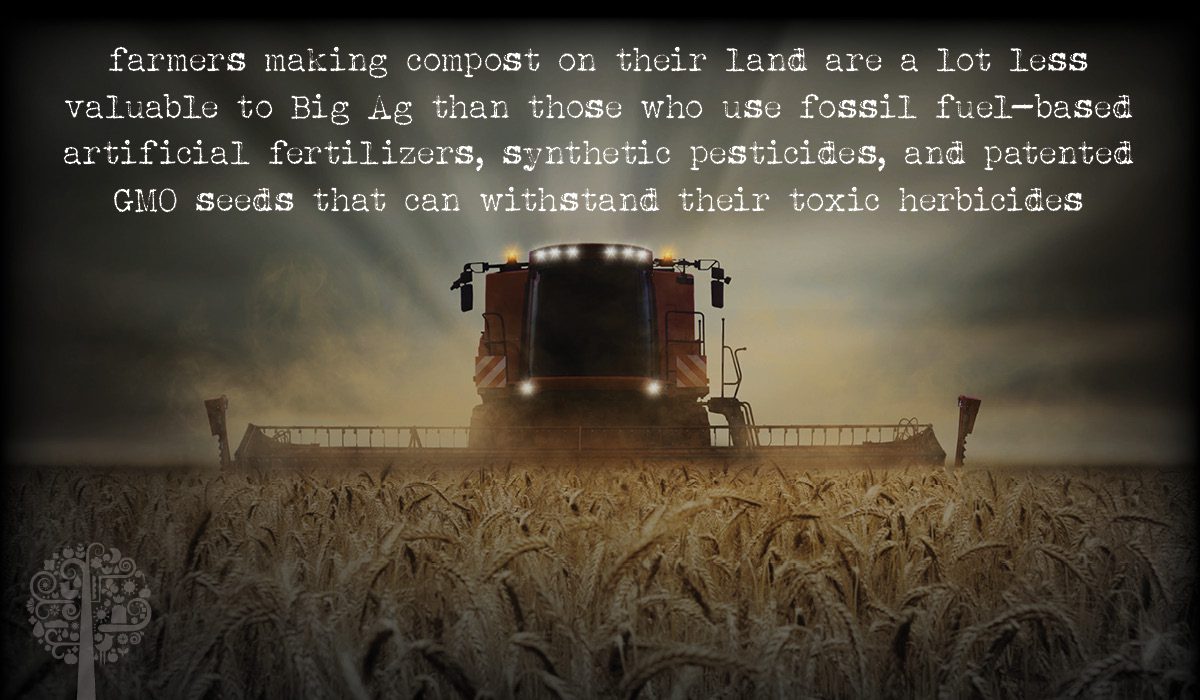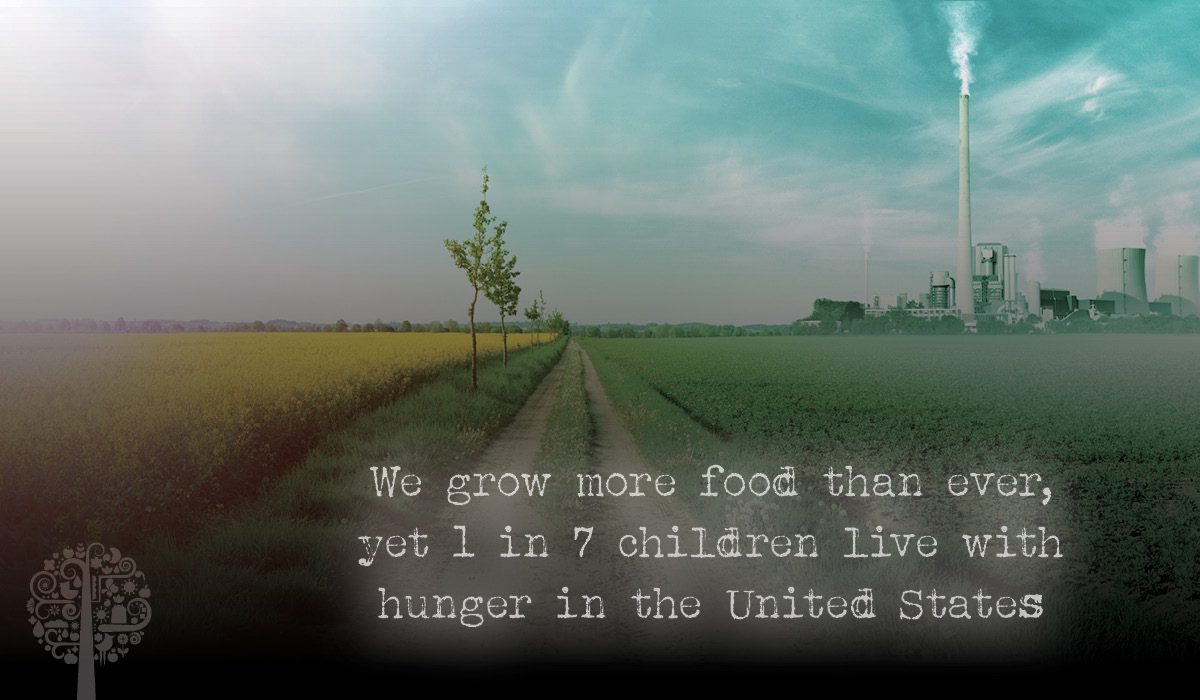Agriculture in Politics: Helping Farmers Make an Essential Transition
The story of agriculture maps human history. From the original farmers that planted the seeds of human specialization and culture to the signing of the Homestead Act by Abraham Lincoln in 1862 that granted cheap plots of land to create a new population of family farmers, most of our history has been agricultural.
Farming has historically been an opportunity for prosperity, but agriculture’s politics and landscape have changed radically over the years. Today, conventional farming methods are doing as much harm as they are good. Rather than receiving reverence from eaters for feeding the masses, modern farmers are almost as dependent on politicians’ decisions in Washington, DC as they are on the sun and the rain.
In the 1800s, more than 90% of the population in the United States lived on farms. Today, that number is around 1%. But it is not only the number of people who identify as farmers at issue. The most radical transformation of our agricultural system has been around policy, particularly the political and economic pressures that have resulted in the loss of diversity and a transition to conventional artificial methods, along with the consolidation of the farms themselves. In other words, natural has been replaced by synthetic, and the corporate mega-farm is consuming the small family farm.
Agricultural Policy
The importance of how we approach agricultural policy cannot be overstated. Earl Butz was the Secretary of Agriculture under both Richard Nixon and Gerald Ford from 1971-1976 and is responsible for the policy tact that engineered the transformation to Big Ag under the auspices of economies of scale, or the concept of maximizing production and reducing input costs per acre. This philosophy may make sense for products like cars that can be made more efficient by an assembly line, or when it comes to commodities where quality is not of such vital importance. But when it comes to things like food or health care where quality is the point, economies of scale can do significant damage.

Beyond bringing us an era of empty food and toxic rescue chemistry, the result of Mr. Butz’s new policies were the beginning of the end of any positive collective agricultural identity in the mainstream of our population. The economic efficiencies found in farm consolidation have resulted in lower processed food costs and large corporations’ ability to withstand economic downturns better. It has also resulted in a nation growing sicker by the day, ripping the heart out of the heartland.
Big Ag
Stories hit the news daily of generational farms going under or being consumed by the machinations of Big Ag. The USDA Economic Research Service report, “Three Decades of Consolidation in U.S. Agriculture,” written in March of 2018, tells that over the past 30 years, farms with less than 1,000 acres have fallen from over half of American farms to roughly a third. And farms with at least 2,000 acres have more than doubled over that same time frame.
Economies of scale make sense to maximize profit, but at what cost to people? Does it make sense to sacrifice quality in the name of efficiency? Ultimately, does the socioeconomic devastation and chronic disease epidemic that we are experiencing due to the toxic nature of agricultural inputs and the gaps in our nourishment quality result in what we would want if we were asked?
A Missing Connection
The modern world’s industrialization has taken us further away from our food than ever before, both literally and figuratively. Our collective distance from agriculture and real food is, in turn, generating massive disruption in our social systems and taking us further away from our common sense. We grow more food than ever, yet 1 in 7 children live with hunger in the United States. And up to 25% of fresh food produced in the U.S. is wasted because it is deemed “ugly” by consumers or grown to excess in monocrops that are plowed under in the field.
The modern agricultural systems conduct what is called “conventional agriculture.” Less than 1% of farmland in the U.S. is certified organic; the rest involves massive amounts of artificial man-made synthetic inputs in the form of fertilizers and ecocides that are highly extractive and expensive. Conventional agriculture is now recognized as generally hindering resilience across the human story and a contributor to climate change and the carbonization of the atmosphere. Thankfully, with new investment commitments from global corporations and films being produced like the recently released Kiss the Ground, regenerative agriculture is becoming a mainstream concept.
Political Ignorance
Given the dots that can so easily be connected here regarding agriculture and health and the strength lost in the dilution of diversity, it is inexcusable that the highest levels of government and media have not been rightly engaged in this conversation. Our leaders are ignorant of the damage being done, or worse, ignoring it. For instance, former President Barack Obama gave remarks to a Joint Session of Congress on September 9th, 2009, focused on his plan for health care reform, and in the 5,697 words spoken in the speech, not one time did he mention “food” or “agriculture.” It was not until the 2016 cycle of the presidential election where the concept of regenerative agriculture was even mentioned as a policy issue. Despite this progress, we ended up with a President that believes fast food is a square meal.
Big picture, our agricultural system in the United States is built for scale, efficiency, yield, and profit, not to feed and nourish people. Our agricultural priorities are backward and effectively breaking the social order, producing far-reaching and devastating impacts on the Earth.
It begs the question, what is the point of our politics if it is not focused on our people’s well-being?
Uphill Battles
The problems that we face are heartbreaking and formidable. They cannot be solved solely by the market-based profit motive of capitalism or the self-limiting socialism authority. We must strike a conscious balance that uses science as a tool, not a religion, and places human wellness before profit and power. This is precisely what makes regenerative agriculture so appealing as a solution to the massive problems that we face. Innately, the very idea of growing healthy soil to produce healthy crops that result in healthy people teaches us this lesson. But will our politicians choose to listen?

In general, politicians follow; they rarely lead. Until our political efforts create and a growing number of political candidates that can speak the language capable of inspiring us, we will continue to undermine ourselves.
To approach our purpose’s potential, we must recognize that the very concept of a democracy pits a portion of the population against ourselves. Without nurturing and right wisdom, democracies will always consume themselves after a certain length of time due to their democratic nature. It is our responsibility alone as conscious human beings to prevent the math of our great human endeavors from undermining our humanity. The only logical way to do this is through a commitment to biological balance, reverence for the ecosystems that nurture and sustain us, and educating ourselves and, in turn, our politicians.
Agriculture in Politics
Here is the truth: our agricultural system has not changed for the better due to special interests that drive agricultural policy. Another way of saying this is, follow the money. The reality is that farmers making compost on their land are a lot less valuable to Big Ag than those who use fossil fuel-based artificial fertilizers, synthetic pesticides, and patented GMO seeds that can withstand their toxic herbicides.
People need to hear and know the logic of these concepts and stories, and given the prompt and function of our democratic republic in the United States, there is no better mouthpiece than elected officials. However, this awareness has yet to translate en masse to the voting booth; the political pressure is not being applied by the citizens.
Despite the daunting dialogue here, the political tide will continue to shift towards more logical approaches to human nourishment, social order, and ecological resilience as people continue to eat their values, and voters are presented with the exponential disaster that the corporate stranglehold on agriculture is creating. In the same way that agriculture awakened our consciousness and helped us begin to put down the roots of civilization at the beginning of the human story, agriculture can once again save us from ourselves and lead us into a healthy and abundant future.
Ultimately, the most critical and potent work of our time will be around helping conventional farmers transition to regenerative methods. How we wake up and show up for this work, as people and collectively as government, will define our success as a species.




